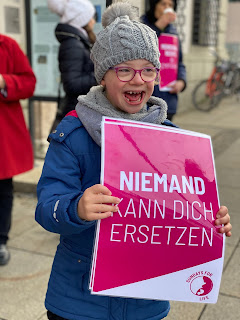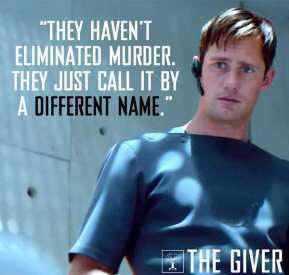Pro-Life Status Report from Germany
[Editor’s note: Today’s guest article by German pro-life advocate Andreas Düren was written before the coronavirus outbreak.]
In Germany, abortion is generally illegal under Section 218 of the criminal code. The only exceptions are the so-called “medical indication” (danger to the life of or the threat of grave impairment to the pregnant woman’s physical or mental health” as well as “criminal indication” (the termination of pregnancies which are the result of rape or incest).
The “medical indication” abortions are almost exclusively abortions because of disabilities of the child: almost 4.000 cases a year.
The German Federal Constitutional Court has ruled twice that even pre-born children have human dignity and the right to life.
Unfortunately, that said, there are over 100,000 abortions in Germany every year. That means 6.1 abortions per 1,000 women aged 15-44 (compared to 13.5 in the United States).
The vast majority of abortions (96%) are performed illegally. Those are abortions that are not indication-based, but instead based on a landmark decision of the Constitutional Court. In 1993, it decided that it is not possible to protect the unborn child without their mothers. To dissuade women from choosing an abortion, all participants go unpunished if:
- the woman visits a state-certified pregnancy consultation center;
- she follows a three-day-waiting period to reconsider; and
- the decision to abort is solely hers (pressuring someone into an abortion is a criminal offense).
These abortions are still illegal, but they are not punished. They are provided by doctors and abortion facilities.
This ruling created a strange situation, where it says that abortions are generally wrong because every human has dignity and the right to life and, at the same time, opened the door for technically illegal but practically legal abortions.
For example, the federal republic of Germany publishes a roughly 300-page annual report on the condition of the forests in Germany, including proposals on how to improve the situation.
There is no such thing for abortions. In a way, a German tree enjoys better protection than a pre-born child.
The counseling is – at least according to the law – required to persuade the woman to carry her child to term. In practice, however, counseling is geared to an “open outcome” and can even be performed on the phone.
Doctors are obliged to report the numbers of abortions performed but are not financially compensated for this work – meaning no incentive to actually report correct numbers. It also doesn’t account for mothers who travel to neighboring countries for their abortions.
Most people do see there being something wrong with abortion but are too afraid to go against the mainstream view and not knowledgeable enough to actually form a well-informed decision.
Even the majority of people who firmly believe that abortion is wrong under all circumstances are often too afraid to leave their comfort zone and to engage in debates on the issue, mostly out of fear of being seen as anti-women.
 |
| A young woman holds a Sundays for Life sign |
The videos that we created are personal stories of people affected by abortion: one woman’s crisis pregnancy and how she chose life for her child, and a man’s account of his role in his wife’s abortion.
These personal testimonies are virtually non-existent here in Germany and Europe in general, and we hope to reach people by these captivating, challenging, and personal stories.
So far, we have reached thousands with our videos, and there are more videos to come soon.
We want to engage the general public on social media with humorous and thought-provoking content. We want debates to take place. Because when people talk about abortion, they have to think about abortion.



Leave a Reply
Want to join the discussion?Feel free to contribute!